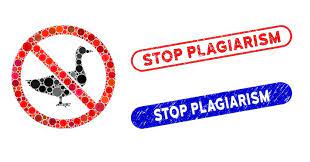How to Avoid Plagiarism | Tips on Citing Sources

Plagiarism is the act of using someone else's words or ideas without giving them proper credit. It is a serious offense that can have negative consequences, such as loss of credibility, legal action, and academic penalties.
7 Tips to avoid plagiarism and cite sources properly
Understand what constitutes plagiarism:
Plagiarism can take many forms, including copying text directly from a source, paraphrasing without citing the original source, and using ideas or concepts without giving credit. It's important to understand what plagiarism is to avoid accidentally committing it.
Use proper citation style:
Different academic fields use different citation styles, such as APA, MLA, and Chicago. Be sure to use the appropriate citation style for your discipline and to follow the guidelines closely.
Keep track of your sources:
When researching a topic, make sure to keep detailed notes of the sources you consult. This will make it easier to properly cite them later.
Use quotation marks:
If you use exact words from a source, be sure to put them in quotation marks and cite the source.
Paraphrase properly:
When paraphrasing, be sure to reword the text in your own words and cite the original source. It's not enough to simply change a few words and present it as your own work.
Give credit for ideas:
If you use an idea or concept from a source, be sure to give credit to the original author. This can be done by citing the source or by mentioning the author's name in your text.
Check your work:
Before submitting your work, double-check your citations to make sure they are correct and complete.
By following these tips, you can avoid plagiarism and give credit to the sources that have informed your work.






